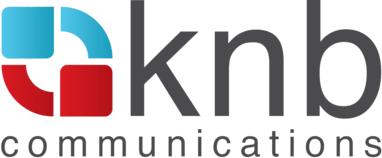Media Training is the Key to Successful Interviews – Part 1
Table of contents

This is the first in a series of blogs that address the importance of and “how-to” of media training.
Throughout my career, I have had the privilege of watching some incredibly talented and intelligent CEOs and other senior executives master media interviews they participated in, either on television, radio or with a print reporter. Alternatively, I have seen others fail miserably at trying to communicate to a broadcast interviewer or print reporter. Invariably, “bad” interviews will always be blamed on the reporter. “They were out to get me/the company,” “They didn’t understand my/our business,” “They asked stupid questions,” “They didn’t give me enough time to finish what I needed to say,” are only a few of the many excuses I’ve heard from company spokespersons I’ve worked with as to why the media interview they participated in either did not result in a story or did not communicate the messages the spokesperson/company wanted to communicate.
When it comes to the media interview, here are a few facts that most company spokespersons who have experienced the “bad interview” fail to realize:
- Reporters have a job to do. That job is to get the story. They usually don’t start out with anything more than basic questions that are most of the time developed from a limited knowledge of a business, its products/services or issues surrounding the industry that business is in. But like any reporter, if you give them information that they believe will make their story more compelling and attract more readers/viewers/listeners, they’ll take it. There is a plus-side and a minus-side to this.
- It is not a reporter’s job to understand your business or industry; instead, it is the interviewee’s job to make this happen. And, although it is the job of the PR practitioner who pitched a specific story to present a business/product/service in a clear and understandable manner, the spokesperson should not make any assumptions about what a reporter knows or doesn’t know.
- There are no “stupid” questions. A reporter will ask questions based on what they understand about a specific business (back to the previous bullet).
- If the reporter doesn’t feel there is enough substance in an interview; if they feel that their readers/viewers/listeners won’t glean anything from a story, the story will not run.
If I have learned nothing else from the two-plus decades I have practiced public relations, it is this: whether you are a member of the C-suite, a subject matter expert or a company spokesperson, media training is the only way to help ensure that the media interviews you participate in will result in the story you want to run. I have found this to be true 99 percent of the time. The other one percent is usually because an editor decided to change a story or an interview didn’t run or was cut short either because of an important new story or late-breaking news that pre-empted all other media coverage.
So, if media training is that important, why don’t more people who participate in interviews get trained? Again, my experience here varies. When I worked on the corporate PR side, there was more control over deciding who would be media trained. Many corporations have policies that do not allow anyone outside of the PR Department to speak with the media unless they’ve been formally trained. On the agency side, my experience in this area varies. While a handful of clients welcome the opportunity for media training, many do not. “I don’t have the time to commit,” “We don’t have the budget,” “I don’t need media training,” are some of the more popular excuses I’ve heard. I also believe that some company spokespersons are afraid of retribution or recrimination should they participate in an interview that doesn’t go well.
So – for all those company spokespersons out there who are reading this post, this is my advice to you:
- Committing time and money to media training will probably be one of the best investments you’ll ever make when you consider how much your business will gain from media interviews that communicate clear and concise messages and help establish you (and your company) as thought leaders. Also, in an age of social media where a bad interview can be disseminated to a much broader audience, you run the risk of having much more than time and money to lose.
- Unless you speak with the press on a regular basis (in my opinion, at least once or more a week), ANYONE who participates in media interviews needs media training. An interview can become art when a spokesperson takes control of an interview rather than simply answer a reporter’s questions.
- It’s okay to feel intimidated by the concept of a media interview. Most people do to some extent or other however, when you know and practice the tools you learn during media training, you will feel more confident and less likely to fear what lies ahead.
In subsequent blogs, you will learn the basic tools of media training, how to prepare yourself for succeeding in the company spokesperson role, and the importance of practice.
KNBeings are the team members behind KNB Communications. KNB Communications is a top 10 health tech marketing and PR agency specializing in healthcare, biotech, and life sciences.
Search




.svg)
.svg)




